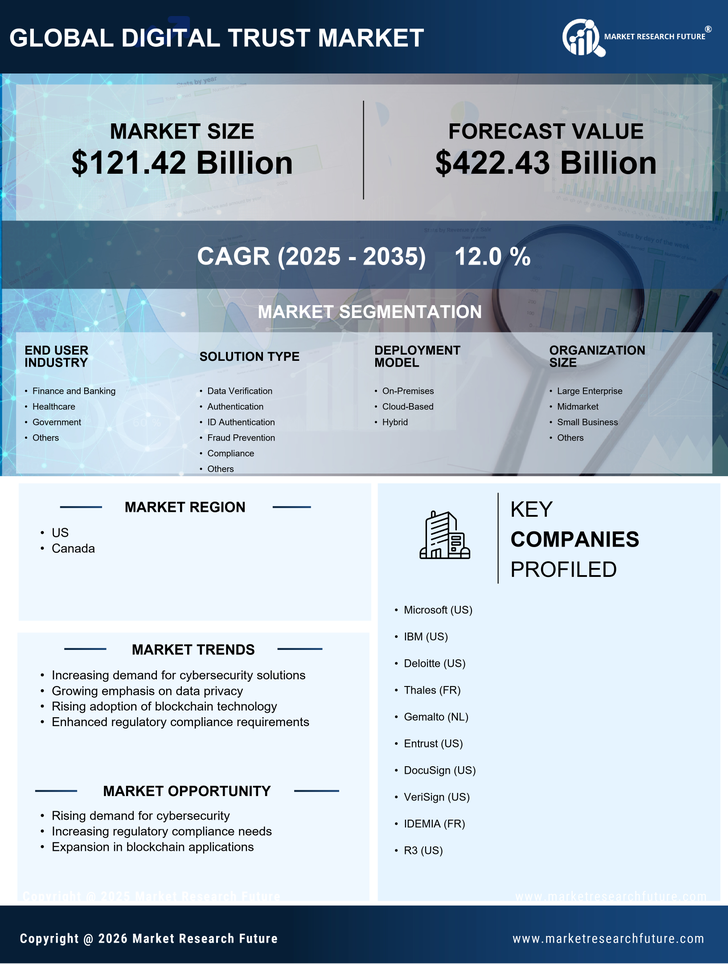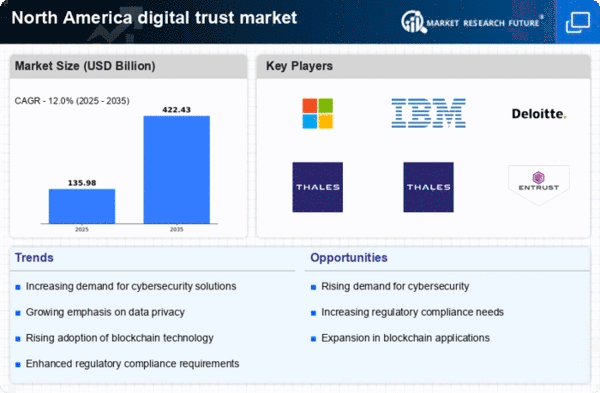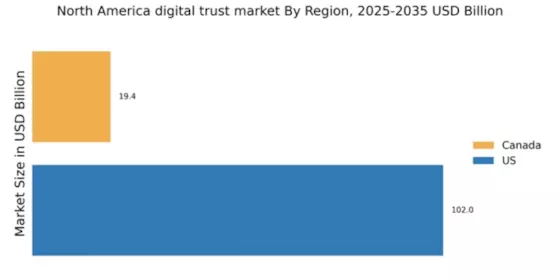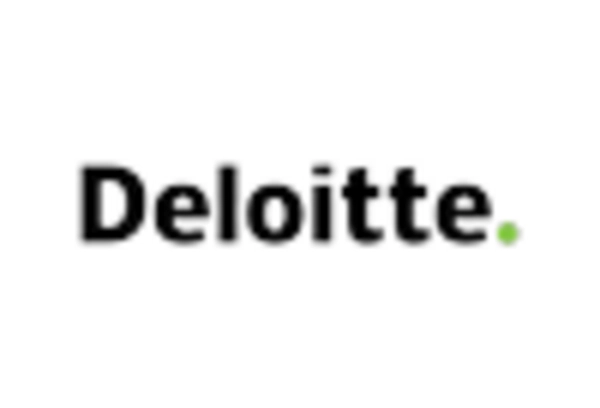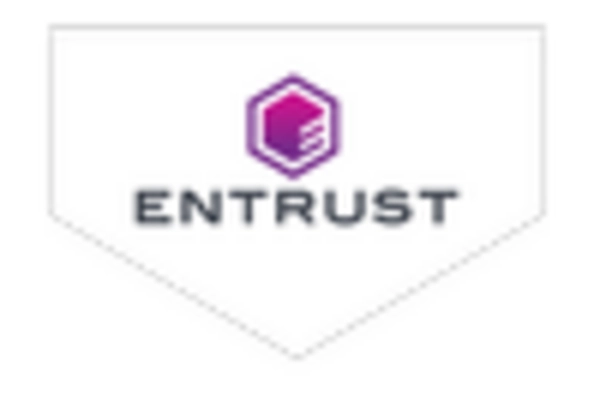Growing Consumer Awareness
In North America, the increasing awareness among consumers regarding data privacy and security is a pivotal driver for the digital trust market. As individuals become more informed about their digital footprints, they demand greater transparency and accountability from organizations. This shift in consumer behavior is compelling businesses to adopt robust security measures and transparent data handling practices. According to recent surveys, approximately 70% of consumers express concern over how their personal data is utilized, which in turn influences their purchasing decisions. Consequently, companies are investing in technologies that enhance digital trust, thereby fostering customer loyalty and retention. This trend is likely to continue, as consumers increasingly prioritize brands that demonstrate a commitment to safeguarding their information, thus propelling growth in the digital trust market.
Evolving Regulatory Landscape
The regulatory environment in North America is continuously evolving, significantly impacting the digital trust market. With the introduction of stringent data protection laws, such as the California Consumer Privacy Act (CCPA) and the General Data Protection Regulation (GDPR) in the context of international operations, organizations are compelled to enhance their compliance frameworks. These regulations necessitate that businesses implement comprehensive data governance strategies, which often require substantial financial investment. It is estimated that compliance-related expenditures could reach upwards of $100 billion annually across various sectors. As organizations strive to meet these regulatory demands, the digital trust market is expected to experience accelerated growth, driven by the need for solutions that ensure compliance and mitigate risks associated with data breaches.
Rising Incidence of Cyber Threats
The increasing frequency and sophistication of cyber threats in North America is a critical driver for the digital trust market. Organizations across sectors are facing a surge in cyberattacks, including ransomware, phishing, and data breaches, which have prompted a heightened focus on security measures. Recent statistics reveal that nearly 80% of businesses have experienced some form of cyber incident in the past year, underscoring the urgent need for effective digital trust solutions. As companies strive to protect their assets and maintain customer trust, investments in cybersecurity technologies are expected to rise significantly. This trend is likely to propel the digital trust market forward, as organizations seek to implement comprehensive security frameworks that address the evolving threat landscape.
Technological Advancements in Security
The rapid advancement of technology is a significant driver for the digital trust market in North America. Innovations such as artificial intelligence (AI), machine learning (ML), and blockchain are transforming how organizations approach security and trust. These technologies enable businesses to detect and respond to threats in real-time, thereby enhancing their overall security posture. For instance, AI-driven security solutions can analyze vast amounts of data to identify anomalies and potential breaches, which is crucial in a landscape where cyber threats are becoming increasingly sophisticated. The market for AI in cybersecurity is projected to grow at a CAGR of 23% over the next five years, indicating a robust demand for advanced security solutions. As organizations adopt these technologies, the digital trust market is likely to expand, driven by the need for innovative security measures.
Increased Digital Transformation Initiatives
The ongoing digital transformation initiatives across various industries in North America are significantly influencing the digital trust market. As organizations transition to digital platforms, they face heightened risks related to data security and privacy. This transformation necessitates the implementation of trust-building measures to ensure that customers feel secure when engaging with digital services. A recent report indicates that over 60% of companies are prioritizing digital trust as a key component of their transformation strategies. This focus on trust is likely to drive investments in security technologies and practices, as businesses seek to establish and maintain consumer confidence in their digital offerings. Consequently, the digital trust market is expected to grow as organizations recognize the importance of integrating trust into their digital transformation efforts.
